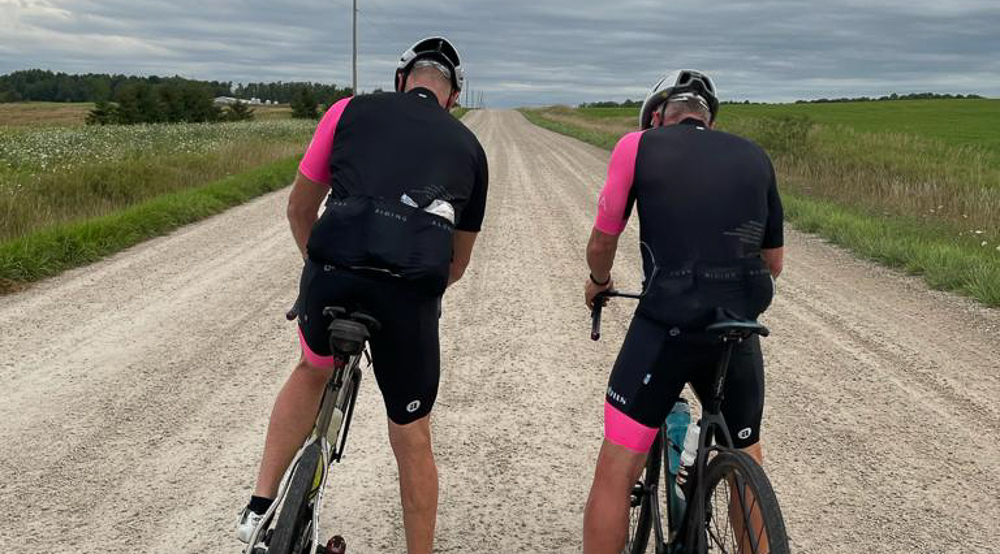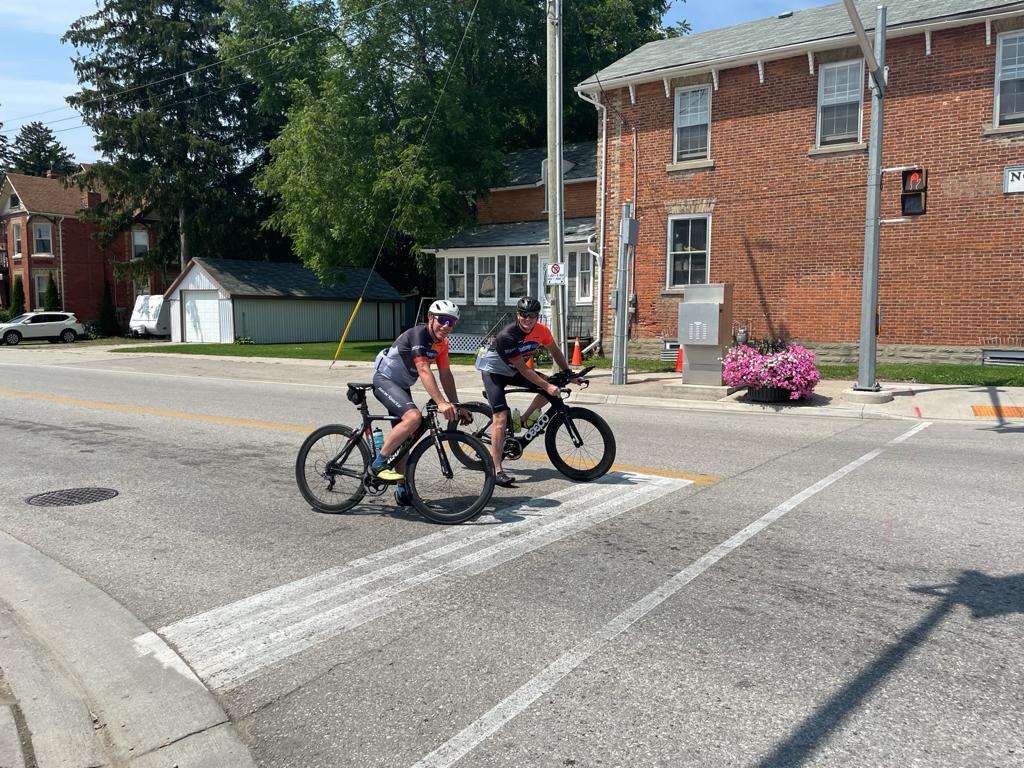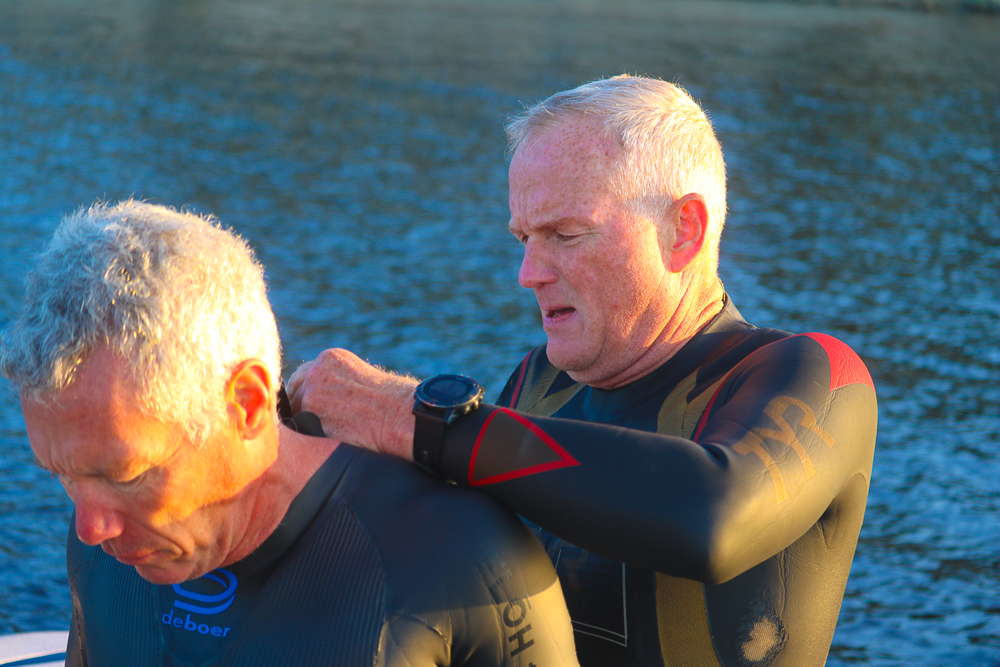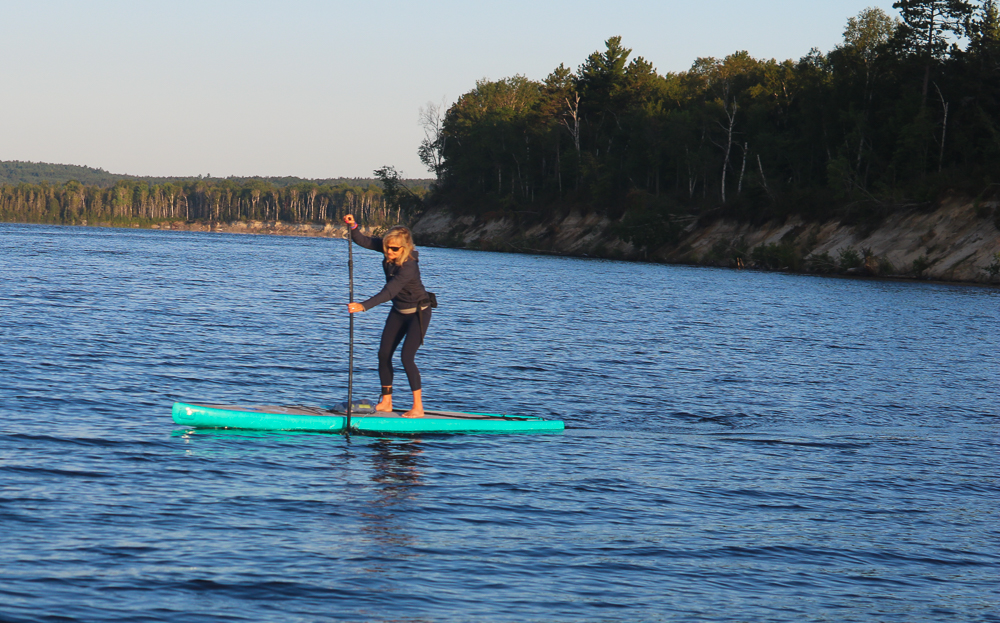Would you bike and swim 567 km for mental health? These two triathletes did
Rangerman fundraiser includes 555 km bike and 12 km swim to raise money for CAMH Research Fellowship dedicated to mental health and addiction research
 Photo by:
Averil Wiley
Photo by:
Averil Wiley
Two years ago Curtis Ranger drove the support boat when Joe Wiley swam across Lake Wanapitei, just outside of Sudbury. I supported Wiley that day, swimming part of the way with him, and taking photos of the event. Ranger was rock solid in the boat, an integral part of the 12 km swim, the first ever swim crossing of the lake.
Last year Curtis Ranger passed away, a victim of a fentanyl overdose. He was 24.

While the world has been embroiled in the COVID epidemic, the fentanyl crisis continues to rage on, especially in places like Sudbury, which has the highest per capita rate of opioid-related deaths in Ontario. Opioid overdoses now account for more deaths in Canada than automobile accidents, and there is a huge relationship between addiction and other forms of mental illness.
Joe and his wife, Averil, were looking for a way to help, and Joe asked me about doing another swim, but wanted to add another component to a fundraising effort. According to Joe, the idea to bike to Sudbury was my idea. I fear he might be right. We came up with “Rangerman” – a 555 km bike from Oakville to Skead, Ont. (just outside of Sudbury, where Curtis Ranger was from) over three days, with the 12 km swim across the lake rounding out the four-day journey. The goal was to raise money to help create a CAMH Research Fellowship dedicated to mental health and addiction research.

Last Wednesday, Aug. 11, with Averil providing support, Joe and I started the Rangerman experience. My son Ian came along for the first 107 km of the ride, helping pull into the wind, then left us on our own for the rest of the 201 km first day of riding. Averil managed to track us down literally two minutes before a huge storm hit us about 24 km north of Walkerton.
On the second day we were on a time clock, having to reach Tobermory to get to the Chi-Cheemaun Ferry for the 45 km trip to Manitoulin Island by noon. We made it with 10 minutes to spare. We finished that day out with another 60 km of riding to Little Current, Ont.
Day three saw us finish the ride with a 160 km jaunt accompanied by Phil Macauley, a family friend of the Wileys. The scenic trip included some scary moments as we rode along the Trans Canada Highway, but we made it to Skead.
In the end we rode 555.24 km and averaged 30.58 kph.

Which left the swim. Let’s just say it wasn’t nearly as smooth sailing as the biking had been. For this crossing it was Dave Ranger, Curtis’ father, driving the boat. In the middle of Lake Wanapitei we found ourselves dealing with three-foot waves. Averil Wiley, who had now moved from soigneur extraordinaire to lead stand-up paddleboarder, was thrown into the lake at one point.
“It will be a boat ride I will never forget,” said Andrew Wiley, who served as a spotter in the boat during the crossing, “Watching Joe and Kevin swim in waves that the Mastercraft could barely handle, and seeing what you guys were doing, bringing everyone together.”

All of which made it that much more satisfying when we completed the swim in just over four hours and finished the Rangerman. We were met at the dock by many members of Curtis’ family, including his mother Bonny.
“Mental health and drug use go together,” Bonny Ranger told the Sudbury Star after the swim. “They’re treated separately but they shouldn’t be. They need to be together. I think this is going to help others. Curtis would be in his glory knowing he was helping others.”
The goal had been to raise $50,000, which would be matched by the Wiley Foundation. We’ve since learned that CAMH needs $150,000 for the three-year fellowship to really work, so our work is not done.
No, we won’t be embarking on another Rangerman journey any time soon, but there will no-doubt be another challenge in the works. For now, though, if there’s anything you can do to help the cause, it would be much appreciated. We need to do everything we can to make sure that the Curtis Ranger’s of the world aren’t lost any longer. Hopefully the Rangerman journey is going to make a difference by providing some much-needed research around the relations between mental health and addictions.
“We do know that more common substances like alcohol or cannabis can prime the reward pathway, making someone more vulnerable to struggling with high-risk substances,” Dr. Leslie Buckley told the Sudbury Star. She’ll be working with Dr. Samantha Wells on the fellowship. “Self-esteem issues, anxiety, depression and many other factors can play a role in someone using substances to self-medicate.”
You can find out more about the Rangerman fundraising initiative at https://give.camh.ca/goto/rangerman
You can read a story from the Sudbury Star about the Rangerman here.
